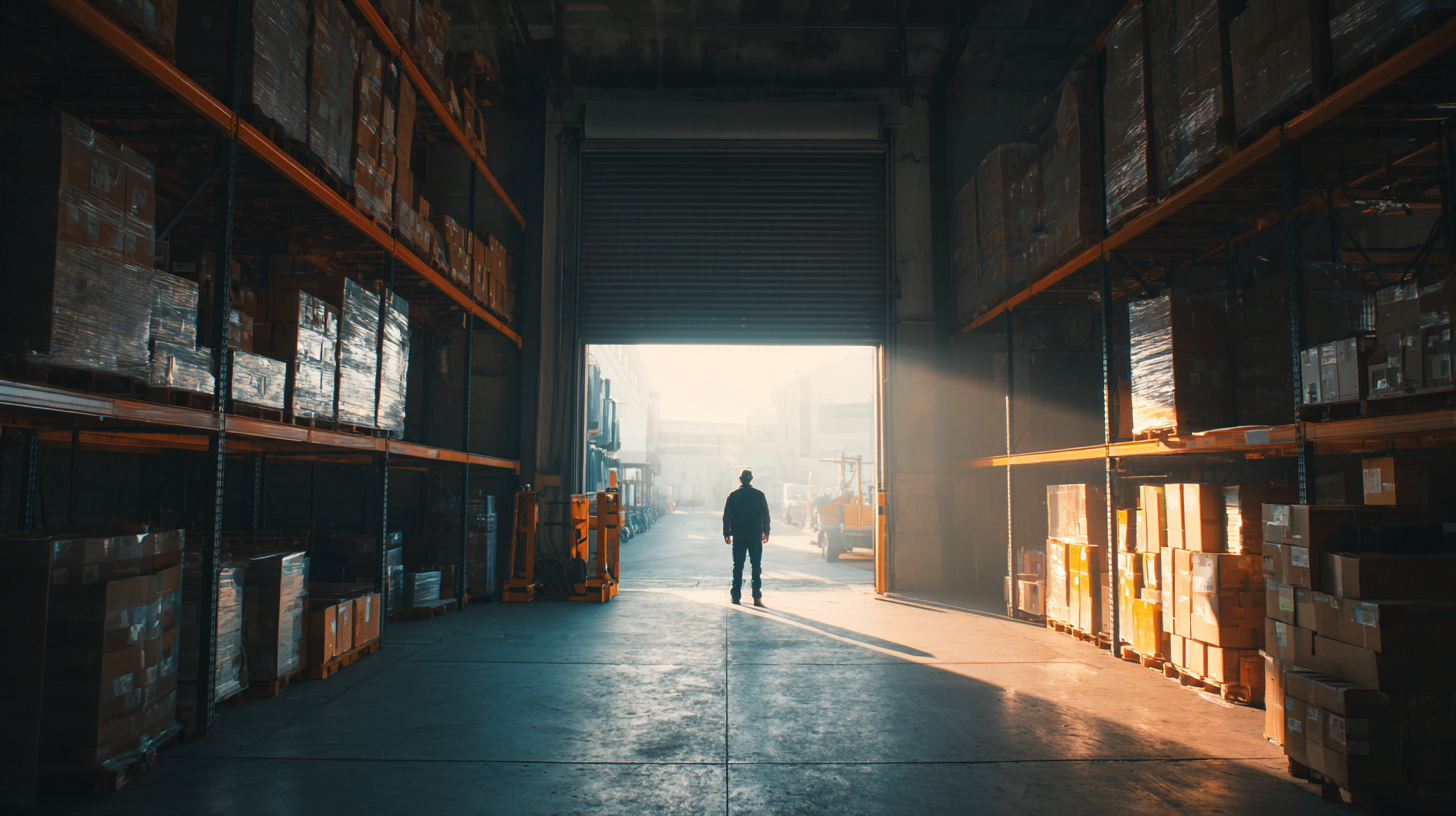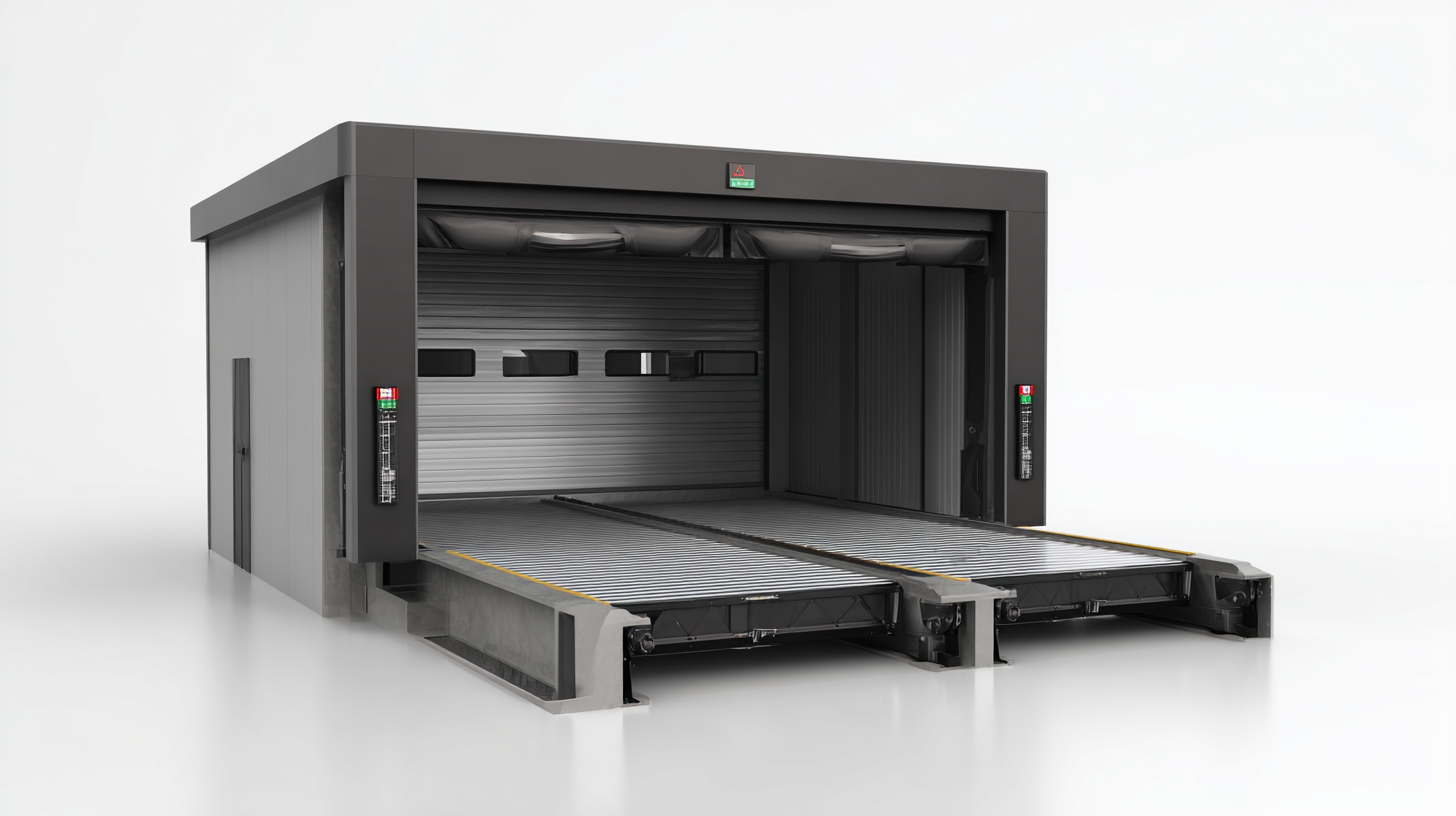In today’s super busy world of logistics and warehousing, picking the right dock leveler really matters if you want things to run smoothly and safely during loading and unloading. Did you know that, according to the Material Handling Industry of America, more than 30% of industrial accidents happen right during loading? That’s a pretty big deal, and it highlights why companies should definitely invest in the right dock leveler to cut down on risks and keep things moving efficiently. There are quite a few options out there—stuff like hydraulic, mechanical, and pneumatic dock levelers—each with their own perks that suit different warehouse setups. So, making the right choice isn’t just smart; it’s essential. At Guangzhou Victorydoor Co., Ltd., we’ve been around since 2005, focusing on Industrial Doors like thermal insulation rolling shutter doors and security fast doors. We also provide top-notch dock levelers that help keep your operations running smoothly and safer for everyone involved.

Understanding Different Types of Dock Levelers and Their Applications
When you're trying to pick out the right dock leveler for your warehouse, it’s pretty important to get a good idea of the different types and what each one’s best for. Basically, there are three main kinds: hydraulic, mechanical, and air-powered. According to the Material Handling Industry (MHI), hydraulic levelers are top picks because they’re easy to operate and can handle heavier loads—think up to 60,000 pounds. They also provide a really smooth transition, which makes them perfect if your place sees a lot of freight traffic coming and going.
On the other hand, Mechanical Dock Levelers tend to be a bit easier on the wallet and need less upkeep. They work with a simple lever system, usually support loads up to around30,000 pounds, and are great if your traffic is moderate—nothing too heavy, but enough to keep things moving. Then there are the air-powered levelers, which are a bit less common but pretty handy in environments with a lot of moisture or if you do heavy washdowns. They don’t corrode as easily as mechanical ones, which is kind of a big plus. A report from the National Forklift Foundation actually mentions that picking the right leveler can boost your operational efficiency by up to 25%. So, it really pays to match your choice to your specific loading needs—don’t overlook it!
Hope that helps make things a bit clearer!
Factors to Consider When Selecting a Dock Leveler for Your Warehouse
When you're choosing a dock leveler for your warehouse, there are quite a few important things to keep in mind to make sure everything runs smoothly and safely. First off, you want to pick one that fits the typical loads and types of trailers you usually work with—size and capacity really matter. It's hard to ignore how big the market for material handling gear is becoming, with projections saying it’ll grow from about $252 billion in 2025 up to nearly $391 billion by 2032. So, it’s definitely worth investing in equipment that can keep up with the increasing throughput and changing logistics needs.

Another key point is safety. Loads of accidents happen on loading docks — in fact, around 6,600 workers got hurt back in 2018 because of mishaps involving docks and ramps. So, going for dock levelers with good safety features, like those with edge-of-dock options or safety barriers, can really help cut down on risks. Plus, with new tech coming out, like double-height dock doors designed for European double-decker trucks, warehouse setups are getting smarter. These innovations help everything run more smoothly as logistics become more complex. All in all, picking the right equipment isn’t just about functionality—it’s also about keeping everyone safe and prepared for future challenges.
Evaluating Load Capacity and Durability Requirements for Dock Levelers
When you're trying to pick the right dock leveler for your warehouse, it's really important to think about load capacity and how durable it is. Basically, your leveler should be able to handle the heaviest stuff you usually work with. But it’s not just about the pallets—don't forget the additional stress from moving equipment and machinery, which can add to the load. It's smart to go for a leveler that can handle a bit more than your typical loads; that way, you’ve got some breathing room and you reduce the chances of things going wrong or equipment breaking down.
And speaking of durability, that’s equally key. Warehouse stuff gets a lot of use, and over time, wear and tear are inevitable. Materials really matter here—things like high-strength steel are great because they stand up to tough conditions and heavy loads. Look out for features like corrosion resistance and reinforced parts—those little details make a big difference. Also, don’t forget that regular check-ups and maintenance can help keep everything in good shape for years to come. The bottom line? By paying close attention to both load capacity and durability, you can pick a leveler that really supports your operations and keeps things running smoothly.
Warehouse Dock Leveler Load Capacity Evaluation
The Importance of Dock Leveler Design in Enhancing Warehouse Efficiency
When you're looking at warehouse management, dock levelers really make a difference in how smoothly things run. A good, well-designed dock leveler isn’t just about making loading and unloading easier — it also helps cut down on accidents and keeps goods from getting damaged. I came across a study from the Material Handling Industry of America (MHIA) that said around 70% of warehouse accidents happen during loading or unloading. That just goes to show why it's so important to invest in quality dock levelers.
The design details of these dock levelers can really impact how productive your warehouse is. For example, models with hydraulic or pneumatic systems can cut loading times by up to 25%, compared to manual options. Plus, a recent survey from Modern Materials Handling found that warehouses using the newer, more advanced dock levelers saw about a 15% boost in throughput — mostly because there’s less waiting around and improved energy use.
Picking the right leveler for your specific needs can not only make things safer but also boost efficiency and even your bottom line. Honestly, it’s worth considering if you want a smoother, safer operation all around.
Comparing Manual vs. Automatic Dock Levelers: Pros and Cons
When you're picking out a dock leveler for your warehouse, it’s pretty important to weigh the pros and cons of manual versus automatic options. Manual dock levelers usually cost less, so they’re often a good pick if you’re working with a tight budget. They’re simple to use and don’t need much maintenance. That said, relying on human strength can sometimes cause delays or even pose safety risks, especially in busy areas with lots of forklift traffic.
On the flip side, automatic dock levelers come with some serious perks — mainly in speed and safety. Just hit a button, and they’ll adjust to different truck heights, which means less chance of accidents and a smoother workflow. Sure, they usually cost more upfront and can be a bit more complex to maintain, but the boost in productivity and the reduced strain on your workers often make it worth it.
**A couple of tips:** When you’re figuring out whether to go manual or automatic, think about how busy your dock gets. If you’re constantly loading and unloading trucks, investing in an automatic model might actually save you a lot of hassle and cash in the long run. Also, don’t forget to consider what kind of training your staff will need — that can really impact how quickly your team gets up to speed and keeps things running smoothly.

Maintenance Considerations for Longevity of Your Chosen Dock Leveler
When you're out choosing a dock leveler for your warehouse, it’s not just about how well it operates, but also about how much effort you’re willing to put into maintaining it so it lasts longer. I’ve come across some industry reports that say, with proper care, your loading dock equipment can last up to 50% longer — which can really add up in savings. Simple things like regular check-ups and keeping everything well-lubricated can save you from expensive breakdowns and keep everything running smoothly, especially during busy times.
With all the recent supply chain hiccups, making sure your equipment stays in top shape has never been more important. Some studies even show that companies sticking to a strong maintenance routine can boost their loading dock efficiency by around 30%. That kind of improvement means faster turnaround times and less money spent on labor, which is a big deal if you want to stay competitive. Putting money into quality dock levelers and keeping up with their maintenance doesn’t just boost productivity — it actually pays off in the long run by reducing downtime and keeping safety standards high.
Maximizing Efficiency and Safety in Warehousing with a Durable Black Hydraulic Dock Leveler
In the fast-paced world of warehousing, efficiency and safety are paramount. A key tool in achieving these goals is the durable black hydraulic dock leveler. This innovative equipment is specifically designed to bridge the gap between loading docks and trucks, addressing the height differences that often complicate loading and unloading processes. By utilizing a hydraulic system, the dock leveler elevates the platform surface smoothly to its maximum height, allowing for seamless transitions between the dock and vehicle.
Once the desired height is reached, the dock leveler's lip plate extends outward, facilitating direct access to the truck’s compartment. This automated movement not only speeds up the overall loading and unloading process but also enhances safety by minimizing manual handling and the risk of accidents. As the platform descends gently onto the truck's compartment board, it creates a stable and secure interface, ensuring that goods are transferred efficiently while protecting the workers involved.
By integrating a high-quality hydraulic dock leveler into their operations, warehouses can significantly boost productivity and uphold safety standards. The reliability and durability of these systems ensure they can withstand the demands of everyday use, making them an essential investment for any efficient warehousing operation.
FAQS
: When evaluating load capacity, it’s important to align it with the maximum weight of goods your warehouse frequently handles, considering both the heaviest pallets and dynamic loads from equipment movement and heavy machinery.
Durability is crucial because dock levelers are used constantly and subjected to heavy wear. Choosing materials like high-strength steel and features such as corrosion resistance can enhance their longevity.
Look for features such as corrosion resistance, reinforced structures, and ensure the chosen leveler can withstand harsh environmental conditions and heavy loads.
Manual dock levelers are typically more cost-effective, straightforward to operate, and require minimal maintenance, making them a suitable choice for budget-conscious businesses.
Automatic dock levelers offer advantages like speed and safety, allowing for quick adjustments to various truck heights, which reduces the risk of accidents and improves workflow efficiency.
Automatic dock levelers tend to have a higher upfront cost and may require more complex maintenance compared to manual options.
Manual dock levelers can lead to inefficiencies and potential safety hazards due to their reliance on human strength, while automatic models reduce physical strain and improve safety.
Understanding the maintenance requirements is vital, as periodic maintenance and inspections can help ensure the longevity and optimal performance of the dock leveler.
For operations involving frequent loading and unloading, investing in an automatic dock leveler may pay off quickly, enhancing productivity and efficiency.
Evaluating the training requirements for staff to operate the chosen system efficiently is important, as it can significantly impact overall productivity in operations.
Conclusion
Picking the right dock leveler is really key if you want your warehouse operations to run smoothly. Honestly, the first step is just understanding the different types out there and what they’re best suited for. Things like load capacity, how tough they are, and their design matter a lot when you're trying to boost safety and efficiency. Oh, and don’t forget, deciding between manual and automatic dock levelers is a pretty big deal — you'll want to weigh the pros and cons of each to see what fits best.
And here's the thing — maintenance isn’t just a boring chore; it’s actually what keeps your dock leveler working well over time, especially with the hustle and bustle of daily operations. At Guangzhou Victorydoor Co., Ltd., we totally get how important these details are. That’s why we’re committed to offering top-notch industrial doors and solutions, including dock levelers, tailored to meet our clients’ unique needs.
